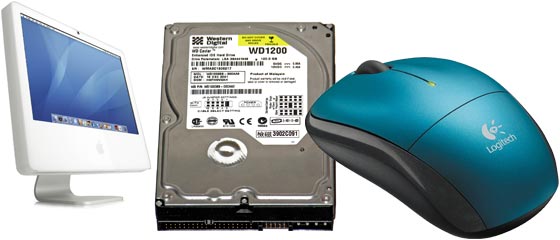 ![[Header]](../XuShared2/Line3.jpeg)

Add a Comment (Go Up to OJB's Blog Page) Rapid Fire or Patience?Entry 862, on 2008-09-30 at 20:41:07 (Rating 1, Computers) I listened to a podcast today where a new photography magazine was being discussed. The discussion went on to cover photography in general and especially whether the revolution from film to digital has really helped produce better images. One of the interviewees used a typical modern digital approach and the other used a more traditional one. Who is right? Has digital photography made the images we produce better?
First I will say what the big change is that digital photography has produced. Its simple really, people just take a lot more photos now because taking a photo is now essentially free where with film cameras each time you pressed the shutter it cost you about $1 (including film, developing and printing costs). So photographers can "blast away" rapid fire style at a subject and take 10 photos only one of which might be kept.
The old approach was to be patient and wait just for the right moment and then take the photo, and the more traditionalist photographer claimed this was a superior approach. But I seem to remember that, even in the days of film cameras, professionals would take plenty of photos to get just the right image.
The fact is that in many situations there are too many variables and the subject is too unpredictable to make just taking one photo a sure way to get a good image. Modern cameras can take 4 or 5 frames in a second so why not make use of that, especially for fast action photography which I often do at air shows and sports games. In the end its the final image which really counts. If it takes ten or a hundred frames to get one good image then why not?
Another subject discussed was whether photoshopping (this is a verb now, like googling, a sure sign of a successful product) images is acceptable. In the days of film many people did their own developing and printing where a certain amount of adjustment, contrast enhancement, cropping, etc could be done. It took a lot of skill and that somehow made it OK. Using Photoshop is a lot easier but using it well still requires skill. I have seen a lot of badly done enhancement which makes the image worse rather than better.
So again this gets back to the end justifying the means. If the final image is really good does it matter if Photoshop has assisted in the process of creating it? This can be taken too far, of course, just like any process.
I take photos knowing that I will process them afterwards. For example, I always zoom out more than what I really want so that I can rotate and crop the image later. But nothing I do really changes the image because I just try to match it with the real subject. I know some people make far more major changes so that the final image doesn't look much like the original subject. That's their style and a perfectly reasonable one but its not a style I want to use myself.
The final issue I found interesting was if "fancy cameras" are important. Of course, having nice toys is a good thing in itself, but I have some images taken with compact cameras which are pretty good. On the other hand the ones I have taken with my dSLR are so much better on average. Having a good quality camera doesn't guarantee you will take good photos but it does mean that technical details (like lower noise, lower distortion, wider ranges of zoom, faster shutter response, better exposure and focus, which are all typical of SLRs) are less likely to be an issue which spoils an otherwise perfect image.
So I think the rapid fire approach does produce a better result. And I think using Photoshop to make reasonable adjustments and enhancements is a good idea. And, yes, having a fancy camera is a big advantage. But all of that won't guarantee good results without skill, patience, and that old favourite: being in the right place at the right time.
 There are no comments for this entry. 
You can leave comments about this entry using this form. To add a comment: enter a name and email (both optional), type the number shown above, enter a comment, then click Add.
Note that you can leave the name blank if you want to remain anonymous.
Enter your email address to receive notifications of replies and updates to this entry.
The comment should appear immediately because the authorisation system is currently inactive.
![[Comments]](../XuShared/Comment1B.jpeg) ![[Preview]](../XuShared/Comment6B.jpeg) ![[Blog]](../XuShared/Up2B.jpeg)
|

![[Comments]](../XuShared/Comment1B.jpeg)
![[Preview]](../XuShared/Comment6B.jpeg)
![[Blog]](../XuShared/Up2B.jpeg)